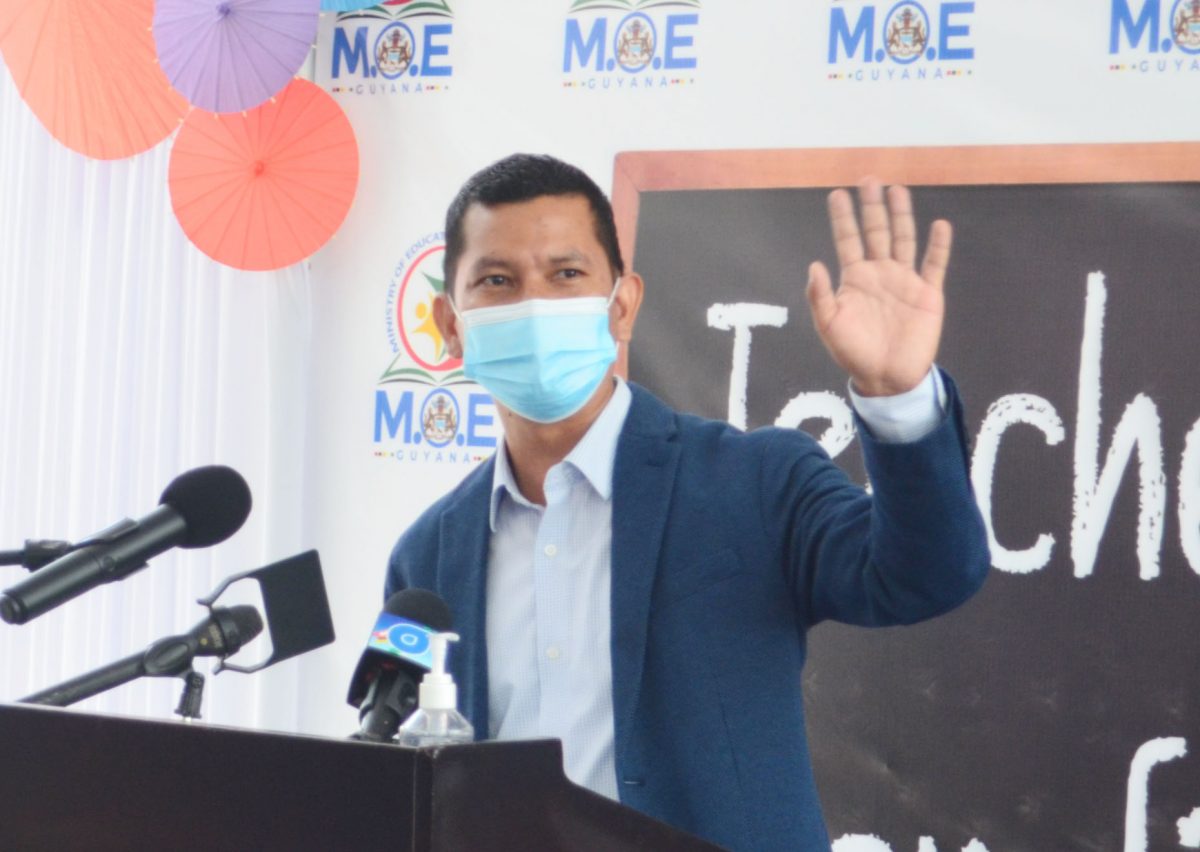The Ministry of Education is aware of the challenges facing students in hinterland communities, including limited access to virtual learning, and is relying on the COVID-19 vaccination rollout to get them back in schools, according to Deputy Chief Education Officer (Amerindian and Hinterland Education Development) Marti De Souza.
Speaking to this newspaper last Wednesday, De Souza noted that access to Wi-Fi and cellphone signals are not as readily available in the hinterland and riverain areas, resulting in limited access to virtual classes.
Currently nursery and primary schools have re-opened for face-to-face learning while secondary schools are awaiting instructions based on the success of the adolescent vaccination programme.
The nursery and primary level students are attending classes scheduled on particular days for each grade by each school, while also utilising virtual learning options on days when students are not physically in school. But not all students have the means to be connected and De Souza said that his department is aware that not all students are being reached through online means. “For children and teachers who have access to the internet, they have continued to do whatever little they can online but it is a challenge. Maybe only within the communities with great signal they are continuing,” he said. “I am sorry to say that that is not what is happening across all (the) hinterland because we are constrained by internet access. Connectivity is not that great and even if we can connect via our cellphone through a 4G network, not all regions have that. Not all locations have that.”
In a recent interview, a student and a teacher living in Region Nine both told this newspaper of the challenges faced as it relates to access to education in the region during the pandemic. The student said that for most who cannot connect virtually, the only option is to use the packages and textbooks provided by the ministry. She also said that the students are behind on the curriculum because of the inability to be connected to their classroom during live virtual sessions. While the teacher said she and her colleagues have been making efforts to reach their students, she noted that students who don’t have access to virtual platforms are given work which they physically hand in at the end of each week. But she has also said that the students are not getting to connect enough with their teachers.
Noting that secondary school students have to wait until the students have been vaccinated before the schools will reopen, De Souza said that students have been coming out for their shots. He said that most secondary schools in Regions One, Seven, Nine and Eight, have had a big turnout by the students for their vaccine. He linked this with the Pfizer vaccine being among the more trusted vaccines.
Concerning the misinformation being spread about vaccines, De Souza said that the ministry continues to rely on educating persons about the vaccines. “Education — that is the most we can do. We have had some good turnout so far at the sites that we have been rolling out the vaccines. At many of the sites we have touched at least half at the moment and it’s a continuous process so we will continue,” De Souza added.
He noted that in cases where the parents are hesitant to take the vaccine, they are also hesitant to consent for the child to take it. But he also said that students are becoming educated and there is some trust in the vaccines being distributed to children between the ages of 12 and 17. He also said that students are informed and in many instances where parents are hesitant, the students themselves are telling their parents that they want to get the vaccine and are asking them to sign the consent letter.






